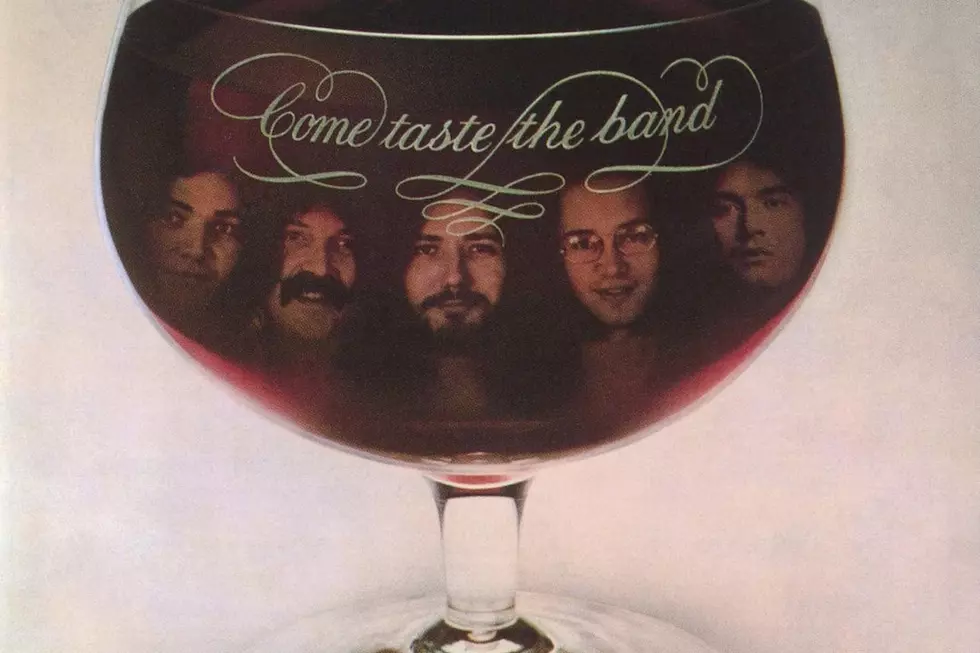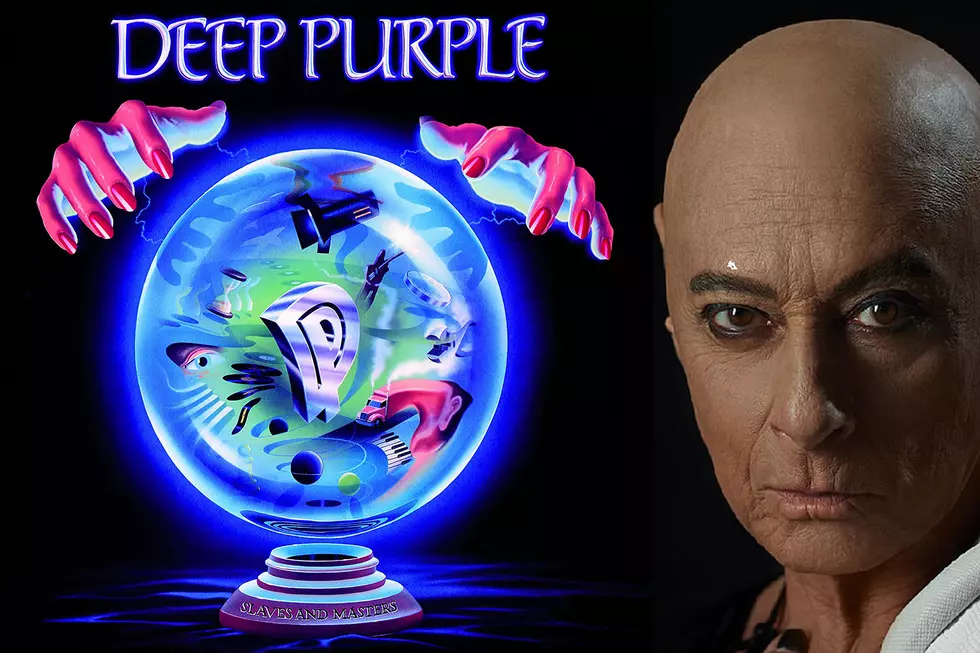
How Deep Purple Rebuilt, Then Broke Apart After ‘Come Taste the Band’
A moment in which Deep Purple might have been reborn turned into a death knell, as their newly rejiggered lineup fell to pieces just after the release of Come Taste the Band.
Arriving on Oct. 10, 1975, the studio project saw Tommy Bolin replace co-founding guitarist Ritchie Blackmore – a move that nudged Deep Purple even deeper into the funk and R&B influences that had marked two previous albums also featuring David Coverdale and Glenn Hughes. Their evolution away from more straight-ahead rock had also driven Blackmore away, but those artistic growing pains weren't the only things pulling Deep Purple apart.
Come Taste the Band arrived even as Tommy Bolin was coming into his own separate fame. A former member of the James Gang, he was at work on a solo album when Deep Purple came calling. And, with everything moving too fast, the guitarist succumbed to personal demons. Worse, he found a willing partner in drug-fueled debauchery in Hughes.
As the wheels came off, the darkly soulful successes found on Come Taste the Band tended to be forgotten. Bolin has likewise been demonized as nothing more than a catalyst for the group's demise. But this album, powered along by a string of groove-focused songs, went Top 20 in the U.K. – and barely missed the stateside Top 40.
And Tommy Bolin, far from the zoned-out shadow-dwelling sideman he was accused of becoming on the subsequent tour, was a key creative force in these sessions – writing or co-writing seven of the project's nine tunes.
Listen to Deep Purple Perform "Comin' Home"
“We all just stood there in amazement," Coverdale has said of their earliest studio moments together with Bolin. "They dug it and I dug it, in the first minute — literally! It was smiles all round.” Jon Lord, the band's stalwart keyboardist, went one step further: “He was just fucking marvelous. I just had to play with this guy!"
Bolin wrote "Owed to G," a free-form funk number which started as a tip of the hat to Stevie Wonder and followed the Bolin-Lord song "This Time Around," while the guitarist worked on the propulsive "Gettin' Tighter" with Hughes. Coverdale worked on a total of five tracks with Bolin, who also shared a melody from his friend Jeff Cook. Coverdale added new lyrics to create "Lady Luck." Meanwhile, "Coming Home" – a tough-minded collaboration with Deep Purple co-founder Ian Paice – seemed destined to become an exciting live showcase for Bolin.
Come Taste the Band was rounded out by "You Keep on Moving," a leftover idea from Coverdale and Hughes that somehow hadn't made it onto 1974's Burn.
Listen to Deep Purple Perform "This Time Around / Owed to G"
Still, Blackmore's absence gnawed at many long-time fans, and Come Taste the Band perhaps moved too far away from the bedrock sounds that helped the group to early fame. The project remains, like Bolin himself, an outlier. "Listening to it now, it's a surprisingly good album," the late Jon Lord said years later. "The worst thing you can say about it is that, in most people's opinion, it's not a Deep Purple album."
The pressure on Tommy Bolin to live up to those old expectations, even while trying to forge his own path, was clearly more than he could bear. He increasingly turned to heroin. "It was a tragedy,” Coverdale subsequently told Mick Wall. "Tommy was a brilliant guitarist but he just couldn’t help himself.”
Meanwhile, Glenn Hughes was dissolving into his own addiction. Bolin ended up playing bass and singing background vocals on "Comin' Home," while Hughes reportedly returned to England to rehab a soaring cocaine habit. The resulting tour, perhaps to the surprise of no one, was largely a disaster. Deep Purple stumbled through Asia, rebounded somewhat in the U.S., and then disintegrated in Europe – where everything came to a very abrupt end.
Coverdale walked out after a March 1976 show at the Empire Theatre in Liverpool, never to return. “It was so fucking embarrassing," he told Goldmine. "Drugs had come in a much more overt way, and it was awful to turn around and see some of the founding members playing with their heads down out of shame. I just went, ‘Fuck it; I’m out of here.’ I just couldn’t do it anymore. I didn’t want to be part of the demise of the legacy of Deep Purple."
Band members scattered, and just six months later – while on a solo tour in support of Jeff Beck – Tommy Bolin overdosed and died. He was 25.
See Deep Purple Among the Top 50 Heavy Metal Albums
More From Ultimate Classic Rock









